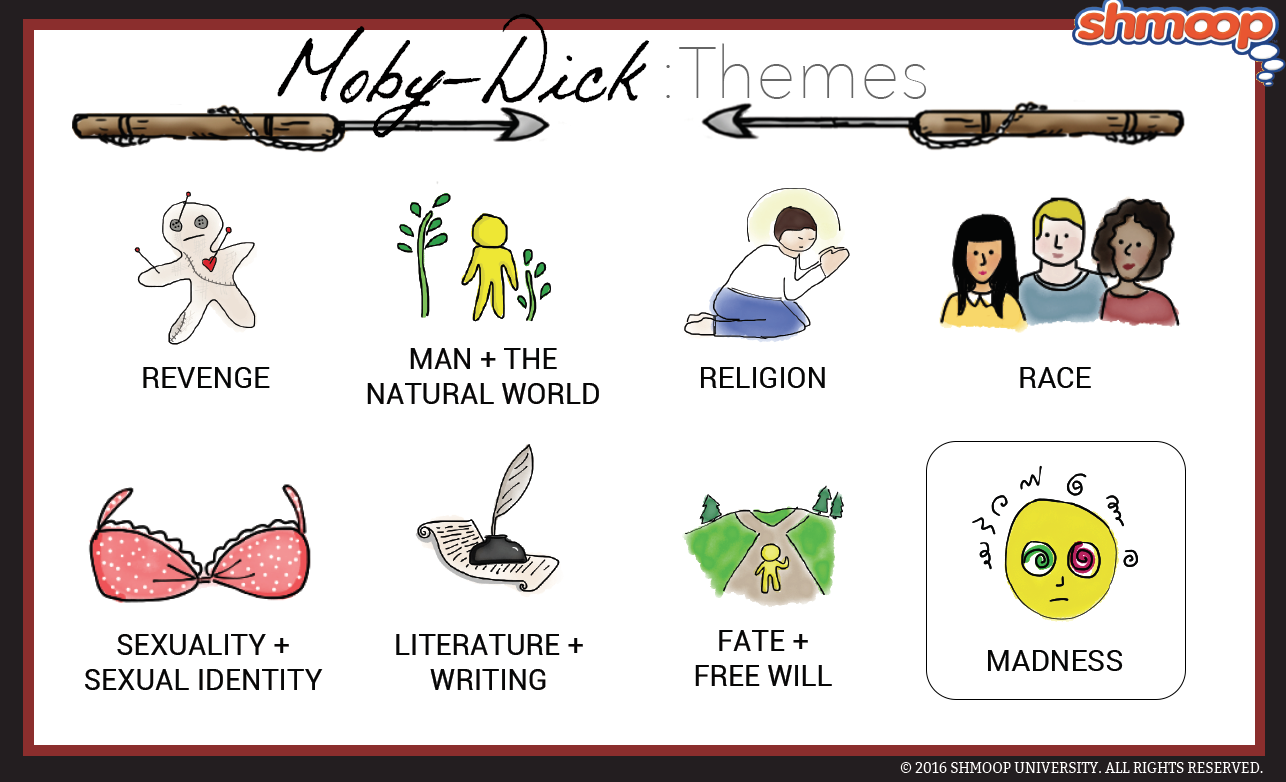 (Click the themes infographic to download.)
(Click the themes infographic to download.)
Insanity, in Moby-Dick, means having a single-minded obsession over one thing or being completely possessed by one overpowering desire... like the desire to personally destroy a perfectly nice whale. Come on, Ahab: you were trying to kill it. Of course it ate your leg.
Functioning highly while being completely mad is certainly an option. The most insane monomaniac (person obsessed with one thing), in this case Captain Ahab, can still behave with cool rationality as he calculates his ship’s course and manages his crew—it’s only his goal that’s totally ridiculous. Other, saner characters seem helpless in the face of his driven, controlled, all-consuming obsession. Another kind of madness the novel explores is the effect of desperate depression on an otherwise normal character.
Questions About Madness
- Compare and contrast Captain Ahab’s madness and Pip’s madness. The old Manx sailor describes them as "[o]ne daft with strength, the other daft with weakness" (125.29). Which is which?
- How do Ahab and Pip manage to communicate through their different forms of insanity?
- Why is Ahab so affected by Pip?
- Why does Melville specifically emphasize that Ahab’s madness is a form of "monomania" (obsession with a single thing)?
- In what respects is Ahab sane? In what respects is he insane?
- How does Ahab’s monomania interact with his status as a tragic hero? Does it make him more heroic or more tragic, or less of either?
- Would we understand Ahab’s character differently if he had had a straightforward psychotic break rather than a madness that develops slowly, over a long period of time, after his encounter with Moby Dick?
Chew on This
By depicting single-minded obsession as an extreme form of madness, Moby-Dick implies that sanity can only consist of moderation and the relinquishing of bad feeling.
Pip’s madness, which he expresses in monologues of witty sound-play and metaphorical association, associates him with the tradition of the Shakespearean fool.